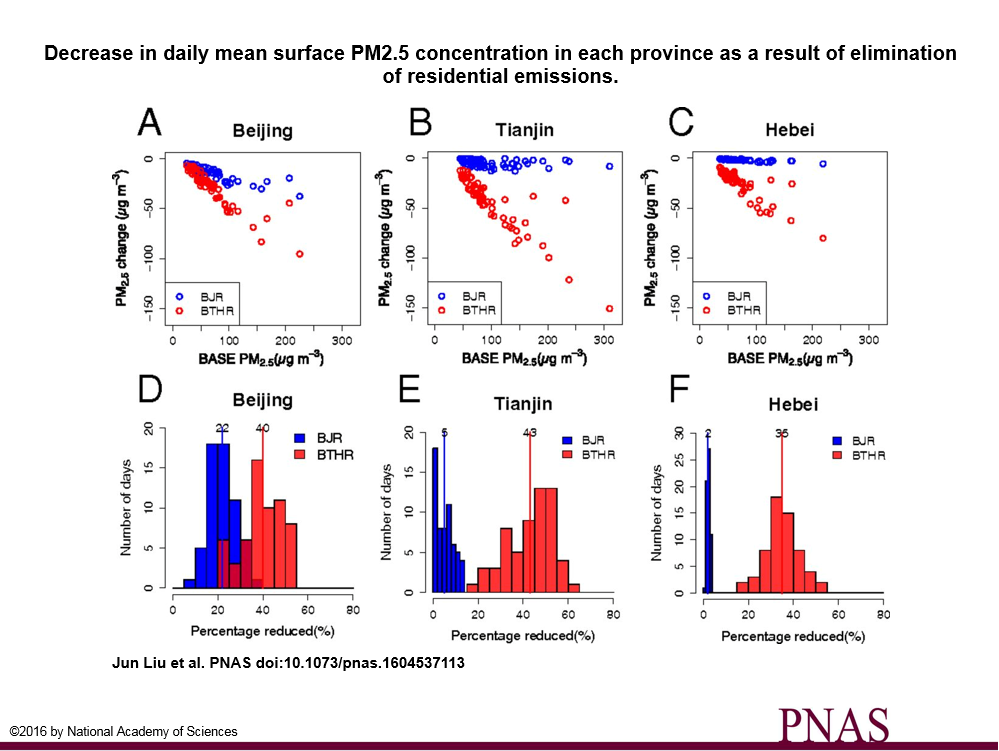Air Pollutant Emissions from Chinese Households: A Major and Underappreciated Ambient Pollution Source
The Proceedings of the National Academies of Science (PNAS) published significant findings from a Chinese study indicating that household emissions contribute significantly to Beijing’s notoriously poor air quality.
In recent years the Chinese government has focused on regulating emissions from the power, transportation, and industrial sectors, perhaps underestimating the importance of household energy consumption for cooking and heating. The study compares the effect of removing residential emissions in the Beijing metropolitan area alone versus removing residential emissions in Beijing and two surrounding regions, where 15% of the national population reside (as of 2010).
The study, which modeled the impact of both scenarios, shows that efforts to eliminate household emissions is significantly more effective in reducing overall emissions than efforts focused in the power and transportation sectors. The study also suggests that eliminating residential emissions on a regional scale have a much larger impact on urban air quality than efforts focused on eliminating household emissions in the urban center alone.
These findings highlight the importance of household level energy consumption and its tremendous potential for impact in the global targets for reducing the harmful health and environmental consequences of air pollution, further supporting the Alliance’s mission of saving lives and protecting the environment by creating a thriving global market for clean and efficient household cooking solutions. These projections are of particular relevance in light of the recent Cookstoves Forum convened by Chinese Ministry of Science and Technology and the US State Department in Beijing in early June.

